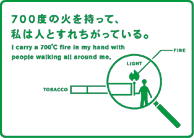I love to be inspired. That flash of cold that makes my thoughts clear and my creativity spike. I had a very inspiring moment yesterday, as I spent a day wandering around Chicago. I was in the city for business and stayed for a day of pleasure.
I immediately stopped by the
Art Institute of Chicago for the
Henri de Toulouse-Lautrec and Montmartre exhibit. I'd have visited the museum regardless of Toulouse-Lautrec, as it holds some of my favorites by Rothko, O'Keefe and Pollock, as well as a great
Japanese selection in the Asian Art collection.
If seeing Montmartre interpreted by Toulouse-Lautrec, Vincent van Gogh, Pablo Picasso and Edgar Degas wasn't inspiring enough, I was amazed at the power of standing inches away from famous paintings that I'd previously viewed in art books or through plastic frames on my college dorm walls. Amazing.
To be that close to such integral parts of art history - and in many cases, famous interpretations of history period - was as inspiring as standing feet away from a concert stage. The rush of inspiration, storytelling, insight and appreciation was proof to me that relying on one medium or neglecting to find inspiration and creativity in multiple places is a loss.
I left the museum wanting to create. I left with all of my senses heightened. I got to thinking about what makes something inspiring and how divining inspiration applies to marketing. Marketers rely too often on traditional paths of delivering our message. We glean "inspiration" from the same people, information or trends. If that's not bad enough, we expect our audiences - from reporters to consumers - to be satisfied and inspired by the same means of communication.
I realized that Toulouse-Lautrec is famous not only because he is a talented artist, but because he found a new way to use his talents to tell a story for a specific audience. He is the father of the modern concert poster. Through sketching the Moulin Rouge, for instance, he found a new way to advertise the dance hall. Instead of printing "Debauchery starts at 10 p.m." he provided an emotional visual. By capturing and cataloging the inhabitants, dancers, working class and night life in Montmartre, he told a story in his own way - a way that was both practical to the subject and relevant to the audience.
It's an example of the larger reason why things work and work well: someone found a different way of doing something. Regardless of the scale or subject, this philosophy works in any situation. For those in the business of telling stories - through paint or press releases - our stories can't inspire until we find a new way of telling them.






